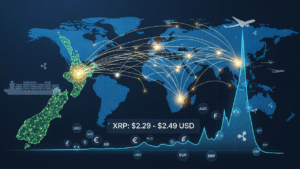The Slovenian gaming industry is currently divided into its land-based establishments, which are successful tourism assets, and its online sector, which remains stifled. The government enforces a monopolistic model that is slow to adapt to digital trends. This rigid structure causes major inefficiencies.
Consequently, Slovenian players frequently use foreign-licensed operators, meaning valuable tax revenue leaves the country. The Ministry of Finance acknowledged this problem in October 2023 when it announced a review of the gaming strategy, suggesting a potential move toward market liberalization.
The law currently limits online operating concessions to companies that already hold a land-based license or a state lottery monopoly. Loterija Slovenije and Športna Loterija control their respective market segments, but their digital products are often basic when compared to international options. This lack of choice pushes committed players into the unregulated gray market.
The central issue for the Slovenian government is the failure to tax this robust digital economy. Large amounts of Gross Gaming Revenue (GGR) are routed to foreign jurisdictions that have adopted open market models.
This situation directly undermines the government’s goal of generating funds for public services. Changing the Zakon o igrah na srečo is essential to comply with European Union market principles and secure a stable domestic tax source.
The Maltese Model of an International Hub
Malta is the premier global hub for iGaming because it established a clear, comprehensive regulatory framework early on. Malta’s strategy is one of jurisdiction-agnostic licensing, which attracts operators who want to serve customers across the entire European Economic Area (EEA). Slovenia can learn from Malta’s ability to turn regulatory clarity into a major economic pillar.
Attractive Licensing Conditions
Malta Gaming Authority (MGA) licenses are globally recognized as a marker of integrity and strict oversight. This reputation builds confidence among operators and consumers worldwide. Malta offers transparent, multi-class licenses that cover various gaming products. This allows operators to use a single, reliable point of compliance for their European business plans.
The success of the Maltese licensing regime is built on a framework that balances operator incentives with high compliance standards:
- The MGA was the first European Union member state to regulate remote gaming, securing a crucial first-mover advantage in 2004.
- The system provides a favorable corporate tax regime for gaming companies, improving their financial stability.
- Operators benefit from an extensive network of double taxation treaties, which simplifies their financial reporting.
- The licensing process requires rigorous technical and operational audits, setting high standards for software fairness and security.
Economic and Infrastructure Growth
The iGaming industry in Malta makes a massive contribution to the nation’s Gross Domestic Product (GDP). This huge impact shows the potential of a fully open market to transform a country’s economy. Slovenia already has an educated workforce and strong digital infrastructure, which could be similarly leveraged.
The regulatory environment created an ecosystem that attracts gaming operators and related support businesses. This includes advanced Payment Service Providers (PSPs), specialized legal and accounting firms, and technology developers. Centralizing the industry generates high-value employment, attracting international talent and developing local expertise in areas like Anti-Money Laundering (AML) compliance and software engineering.
Denmark’s Success in Channeling Players
Denmark offers an excellent example of how a former state monopoly can transition to a competitive market while maintaining strong control. Since its partial liberalization in 2012, Denmark’s main goal has been to move most player activity to licensed operators. The results are clear and positive.
Effective Channeling Mechanisms
Spillemyndigheden (Denmark’s gaming authority) balances regulation by making the legal market appealing to both operators and consumers while simultaneously cracking down on illegal activities. This strategy has resulted in one of the highest channeling rates in Europe.
The core mechanisms driving the success of the Danish market focus on combining a compelling value proposition for legal operators with robust enforcement against the black market.
Denmark’s regulated framework delivers strong results due to several structural decisions that continue to shape a stable, compliant, and highly competitive online gaming ecosystem:
- Over 90% of all online gaming in Denmark now happens on Danish-licensed websites.
- The success factor is a competitive Gross Gaming Revenue (GGR) tax rate of 28%. This rate is low enough for licensed operators to offer attractive deals and competitive odds.
- The regulator actively obtains court orders to implement IP blocking against illegal websites that target Danish customers.
- Licensing fees are reasonable, ensuring that the market is accessible to many operators and is not overly exclusive.
Player Protection and Control
The Danish model places consumer safety first by requiring strict responsible gaming measures built into the technical systems. This gives the state detailed data for oversight and helps prevent harms associated with gray market play. At the same time, Slovenian players seeking safer alternatives can consult review portals such as Casino Online SI to find objective assessments of available international gaming platforms.
The national self-exclusion register, ROFUS (Register of self-excluded players), allows anyone to block themselves from all licensed online and land-based gaming. This system is a powerful, universally enforced safety measure. Furthermore, all licensed operators must follow strict Know Your Customer (KYC) and Anti-Money Laundering (AML) rules, protecting the integrity of financial transactions.
Estonia’s Digital-First Approach
Estonia, known for its digital government and e-Residency program, used its advanced technological base to create an efficient and attractive iGaming licensing system. The Estonian Tax and Customs Board (EMTA) manages a system known for simple administration and low taxes, presenting a model for streamlined regulatory processes.
Low Tax and Administrative Burden
Estonia has one of the most operator-friendly financial environments in the EU, which attracts both new companies and established businesses. This financial advantage is balanced by a thorough and transparent application process, ensuring that only trustworthy businesses are licensed.
Estonia’s open-market framework is built on financial incentives and streamlined administration, creating an environment where licensed operators can scale efficiently and maintain long-term stability:
- Estonia applies a comparatively low Gross Revenue Tax (GRT) on gaming revenue.
- The country has 0% corporate income tax on profits that are reinvested, which encourages companies to reinvest their capital and support economic growth.
- The licensing process is efficient and uses Estonia’s advanced e-Government services, minimizing paperwork and processing delays.
- The license grants legal certainty to operate within the EEA market, respecting the EU principles of free service provision.
Flexibility and Credibility
The Estonian license is highly credible due to the country’s reputation for digital security and transparency. The regulatory structure also provides significant operational flexibility, which is often restricted in older jurisdictions.
Operators receive licenses with long validity periods, reducing the cost and frequency of renewals. Technical standards require secure and modern software, but the rules regarding server location are flexible, allowing for optimized international operations. This blend of low administrative hurdle and high credibility makes the Estonian model especially relevant for a small, technologically advanced country like Slovenia.
The Imperative for Legislative Action
The current legislative inertia in Slovenia represents a missed opportunity for national economic growth. While the Ministry of Finance has indicated a willingness to reform, the speed and scope of the necessary changes must be dramatic to be effective. Slovenia must move beyond simply expanding the number of state-affiliated licenses; it requires a complete paradigm shift toward a genuine, multi-operator competitive market.
A fully open market encourages foreign direct investment in technology and specialized services, creating high-skill, well-paid jobs within the country. This investment flow is critical for maintaining Slovenia’s competitive edge in the highly digitalized European economy.
Furthermore, adopting a model like Denmark’s, which prioritizes player protection, allows the government to regain control over its citizens’ gaming activities, effectively reducing the social cost of problem gaming currently outsourced to the gray market. This move is a strategic alignment with the free market principles of the EU and a commitment to consumer welfare.
The government must allocate resources immediately to establish a nimble and technologically competent national regulator, free from political influence, to oversee this complex transition and ensure ongoing compliance with global AML standards. This strong move will make Slovenia a modern, responsible, and economically active player in the European iGaming space.
The Path to a Sustainable Market
Slovenia’s current gaming policy unnecessarily penalizes itself financially and competitively. Continuing with an outdated monopolistic model costs millions of euros in lost tax revenue and fails to provide adequate protection for its citizens who choose to game online internationally. The problems, such as lost funds, increased illegal activity, and friction with EU law, are clear and immediate.
The government must set a competitive GGR tax rate (ideally under 30%) and create a new, dedicated, technologically capable regulatory body separate from the existing bureaucracy. Successful liberalization is the only pathway to transform a regulatory weakness into a significant new economic driver for the Republic of Slovenia.








